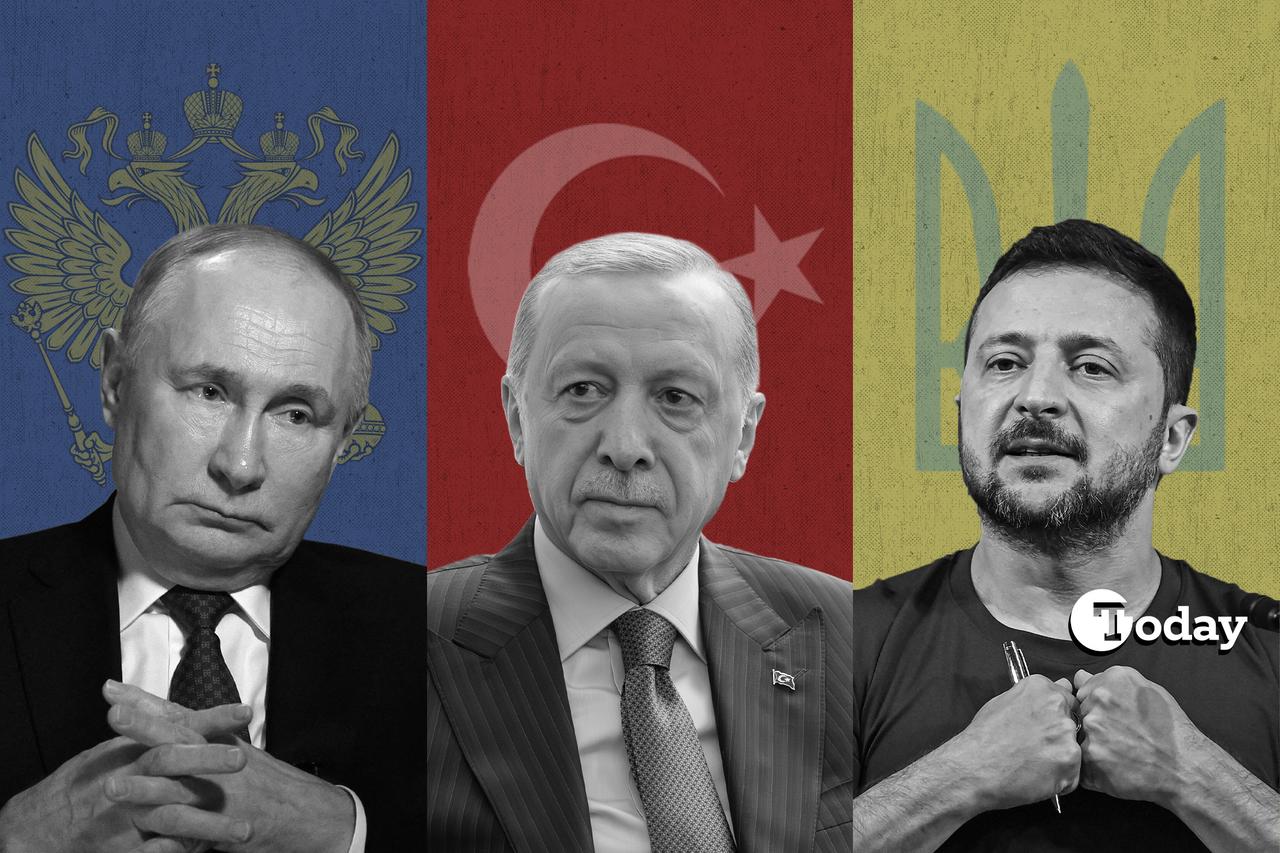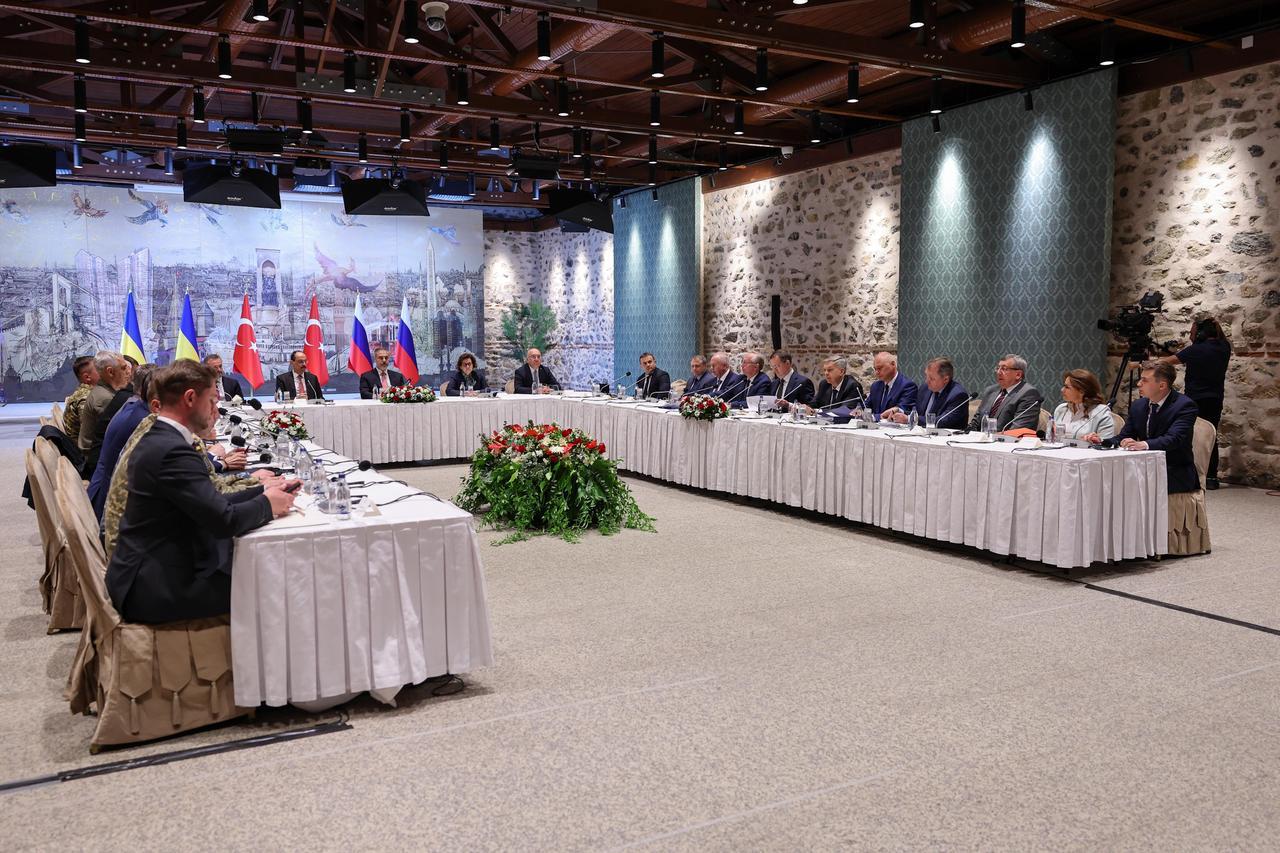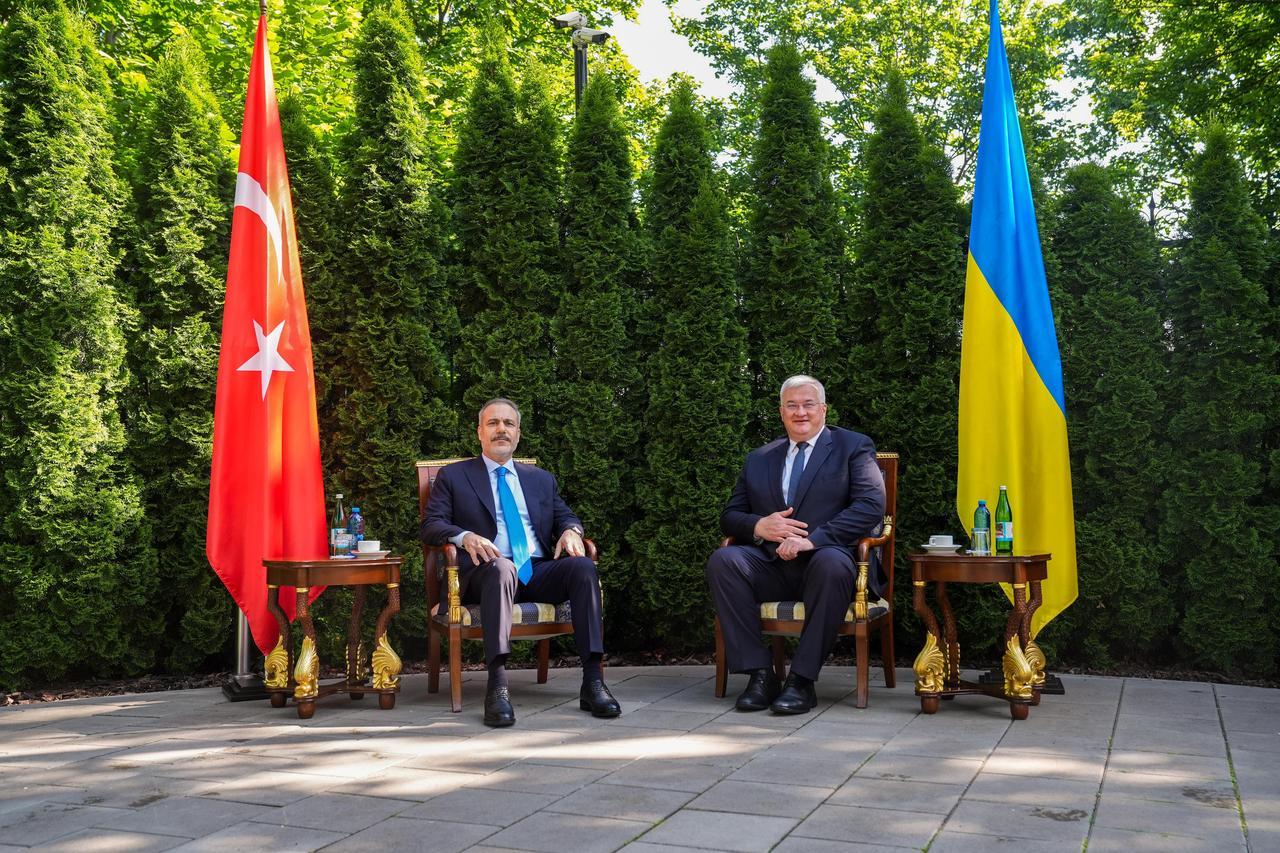
Holding direct talks at the leadership level between Ukraine and Russia, following delegation-level negotiations, will benefit the peace process and should happen without delay, Turkish President Recep Tayyip Erdogan told Ukrainian President Volodymyr Zelenskyy in a phone call Friday.
According to a statement from Türkiye's Communications Directorate, Erdogan and Zelenskyy also discussed bilateral relations along with regional and global issues.
Erdogan said discussing a possible cease-fire during the second round of Russia-Ukraine talks — planned to be held in Istanbul — would pave the way for peace. He emphasized the importance of participation by high-level delegations to sustain the momentum toward ending the war.
Reiterating Ankara’s support for the ongoing dialogue that began in Istanbul in early May, Erdogan expressed satisfaction that the prisoner exchange agreed upon during those talks was implemented quickly.

Türkiye will continue its efforts to help achieve a just and lasting peace between Kyiv and Moscow, Erdogan said.
The previous round of negotiations, held May 16 in Istanbul, resulted in an agreement to exchange 1,000 detainees from each side and to prepare memorandums for future talks. Both Kyiv and Moscow expressed satisfaction with the outcome, raising hopes that the next round, proposed for June 2, may bring progress toward a cease-fire.
Also on May 16, Russia and Ukraine held their first direct talks in three years in the Turkish metropolis, marking a significant step toward de-escalation. The agreement on a large-scale prisoner swap and continued negotiations for a truce were hailed as breakthroughs.

Earlier this week, Russian Foreign Minister Sergey Lavrov announced that Moscow had finalized its position document and was ready for a second round of peace talks in Türkiye. However, Ukrainian officials said they had not yet received the memorandum.
Meanwhile, during a meeting Friday with Turkish Foreign Minister Hakan Fidan, Ukrainian Foreign Minister Andrii Sybiha said Kyiv is ready to discuss a temporary cease-fire. “We want to end the war this year and are ready to discuss a ceasefire — whether for 30, 50, or 100 days,” Sybiha said.